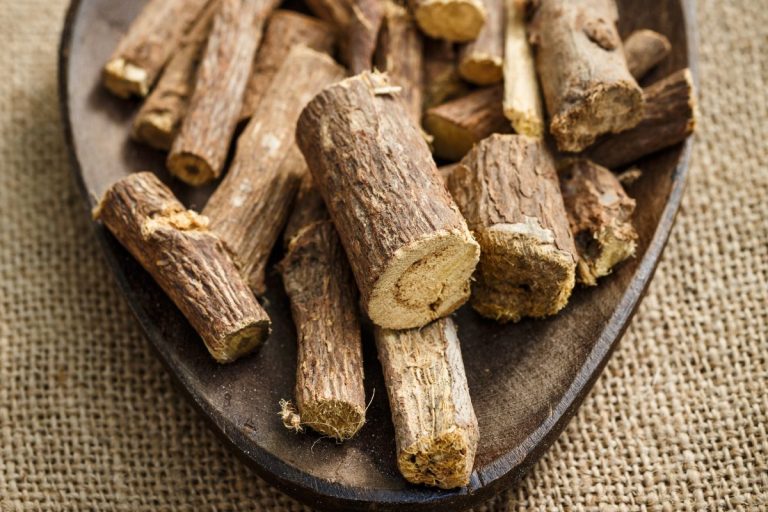Your Stress Bucket
This post may contain affiliate links. View our disclosure policy here.

A stress bucket is a dynamic tool to visualize how stress or various life factors and events affect your health.
Everyone is born with a stress bucket. Factors in your life affect whether that stress bucket is strong and withstanding or whether it’s full of holes, leaking and overflowing. In this post, let me introduce you to what your stress bucket is, what affects your stress bucket and, furthermore, how to empty the stress overloads and keep it balanced.
What is Stress?
According to the World Health Organization, “Stress can be defined as any type of change that causes physical, emotional or psychological strain. Stress is your body’s response to anything that requires attention or action. Everyone experiences stress to some degree. The way you respond to stress, however, makes a big difference to your overall well-being.”
We all experience stress. Some stress can actually be good – pushing us to change, work hard, and achieve great things! Too much stress, however, or certain types of stress can be overwhelming and/or lead to health problems.
What Is Your Stress Bucket?
My First Introduction
I was first introduced to the idea of a stress bucket during my first visit at a functional medicine doctor’s office about 7 years ago when determining the causes of chronic pain and illness. It was a concept, apparently first introduced (according to my internet search) in 2002 by Professor Alison Brabban and Dr. Douglas Turkington to identify causes of stress and also what can be done to reduce it. Since then their original model has broadened a bit.
Your Stress Bucket at Birth
Imagine your birth. Imagine, if you will, at the time of your birth, you were given a bucket. It may have been a nice solid 5 gallon stainless steel bucket – depending on your genetic code, the events of your birth and the nutrition of your biological parents, and other factors you were obviously not in control of. You may have been given a large bucket. You may have been a somewhat small bucket. It may have been intact. It may already have had a small leak.
Life With Your Bucket
Now imagine you go through life with this metaphorical bucket. Think about the things others or yourself made choices of to fill your bucket. Nutrients. Sugar. Toxins. Vacations. Friends. Vitamins. Cigarette smoke. Vaccinations. Food dyes. Fresh Vegetables. Pesticides. Happy memories. Trauma. Water. Conflict. Church. Prayer. Sunshine. Fast Food.
All of these things have an impact on your bucket. Each thing or event either strengthens and helps maintain or repair your bucket OR it causes weakening, dents, holes or an overfilling of your bucket’s ability to hold it all in. High levels of stress or negative attributes in your bucket can disrupt the body’s stress response and affect your physical or mental health.
The positive things in your bucket help to strengthen it and make the bucket sturdy. It allows your body to ladle out the negative stressors so that the water is balanced and calm, not overflowing and not popping out holes. The negative stressors weaken the bucket and causes the rust, dents and holes that we mentioned above. This means your bucket leaks (you leak anger and illness and pain) and overflows and affects your health in a negative way. While you want to ladle out the stressors, you don’t want holes in your bucket. The holes will inadvertently push out the good things and leave you depleted. Putting in the good things allows you to have control in ladling out what’s bad.
Signs Your Stress Bucket is Overflowing

It is important to recognize signs your body gives you that your stress bucket is overflowing, such as feeling anxious, irritable, or overwhelmed as well as physical signs of chronic illness, chronic pain or other physical symptoms that don’t seem to have a physical or known cause. All of these things may be a sign of an overflowing, dented, stress bucket that needs attended.
Identify Your Stressors
We are all affected by the world around us. There’s a LOT of stressors out there. You may be surrounded by stressors even as you sit and read this post. At the present time, I’m not going to go into a lot of detail with these stressors. I’m just going to leave a long list here. What I want you to do is read the list, jot down the ones that you feel are your particularly biggest stressors and then, write down ones that you know are stressors that I didn’t include. Some of you may find you have a lot to write down; some may only have a few. Either way, it’s important to recognize what your stressors are and to know the impact they have on your health.
- high sugar diet
- high incidence of processed foods
- other toxins in your diet or household
- financial difficulties
- poor sleep
- low exercise/movement in your day
- family difficulties
- relationship stress
- job stress
- chronic illness
- chronic pain
- dealing with the chronic illness or pain of others
- death of someone close to you
- situations of uncertainty
- leftover trauma from childhood abuse or other traumatic situations
- recent or dramatic life changes
- drugs, alcohol or other addiction
- dissatisfaction with environment or other parts of your lifestyle
How did you do? Take a few days to think this over. This is not a complete list. You may come up with a few more things to add to your own list.
How to Manage Your Stress Bucket
Once you have taken time to identify your stressors, try to think about if there are any you can remove from your life right now. That may not be easy. You can also identify what things you already do to balance those stressors. Here’s where the tools are you can use to balance out the stressors above. How many of the things on this list are already a big part of your life?
- 7-8 hours of sleep per night
- well balanced diet
- grass-fed meats
- organic produce
- time for relaxation each day or at least weekly
- good time management skills
- whole food supplements
- time for hobbies you enjoy
- daily walking or at least several times a week
- daily exposure to sunshine (when possible)
- fresh air
- daily detox habits
- deep breathing exercises
- yoga
- daily prayer
- affirmations
- mindfulness techniques
- work with apoptogenic herbs, nervines, and other antioxidant herbs
- quality time with loved ones you can trust
- counseling
- morning and evening routines
- time for yourself or time with others (depending on your unique personality and needs)
Hopefully you are doing at least several of these things daily already. If not, that’s okay. There’s no time like the present to pick a few and begin your wellness basket journey. Do remember, as you are making a selection of the easiest things to add to your wellness basket, that there’s no one single thing that is the ‘magic pill’ to health or fixing your bucket. There are some things that may help significantly but it’s really about the balance and day to day consistency in doing all that you can to start the journey and continue.







A very interesting concept. I’ve heard of a love bucket but not a stress bucket.
It really helped me understand the enormity of how important it is to take care of myself and that every step I make towards optimal health really counts!
Stress, the silent killer, is directly associated with the six leading causes of death: heart disease, cancer, lung ailments, accidents, cirrhosis of the liver, and suicide, according to the American Psychological Association. Thank you for bringing attention to the importance of reducing stress.
It’s true. Stress needs addressed just as much as nutrition and toxins and exercise. It’s all intertwined and all part of the stress bucket.